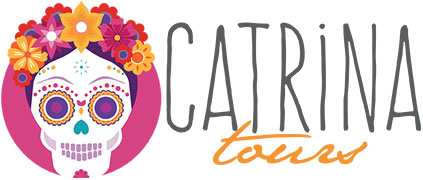Legal Challenges in the Online Gaming Industry Regulations and Compliance
Automating Key Compliance Challenges in the Gambling and Gaming Industry
The Northern Territory gambling license framework stands out as the most accommodating for online operators. This jurisdiction has established itself 888 casino as the primary hub for licensed digital gambling services in Australia, attracting numerous operators seeking to establish legitimate operations. The Northern Territory Racing Commission issues licenses that permit online bookmakers and certain gaming services, creating a regulatory environment that supports business growth while maintaining consumer protection standards.
What are licencing bodies in online gambling?
It sets out prohibitions and allowances regarding interactive gambling services, shaping how online casinos operate and ensuring that services comply with national standards to protect consumers. Australian casino sites contend with strict legal constraints that limit the variety of games they can offer domestically. Additionally, illegal offshore casinos targeting Australian players pose significant competition challenges.
- Basically, the AGCC is all about making sure that online gambling is a fair and safe experience for everyone.
- Every country has its own way of doing things, and what’s legal in one place might land you in hot water somewhere else.
- Just like it has upsides, it also brings about some challenges that are hard to ignore.
- Data analytics and artificial intelligence allow for more sophisticated tracking of transactions and behaviors, enabling casinos to spot patterns that may indicate suspicious activity or regulatory breaches.
Around 2010, mobile gaming emerged as a growing thanks when smartphones and tablets became mainstream. In this article, we’ll explore some of the biggest challenges for casino operators and look at how leading betting brands like Betiton have found opportunities to thrive within this highly competitive sector. Artificial intelligence will provide more sophisticated fraud detection while reducing false positive rates. Real-time settlement networks will eliminate the need for pending transaction periods.
If you’re looking at an online casino, seeing an AGCC licence is generally a good sign. It’s not just about having a licence; it’s about sticking to the laws of the country where they’re operating. If a casino doesn’t comply, they can lose their licence, and that’s bad news for business. It’s like making sure you’ve got all your permits before you start building that deck – you don’t want any nasty surprises later on. Let’s face it if an online casino is offering fake games – what is the likelihood that they have proper security in place to protect players? It follows that by ensuring that players engage with verified online casinos that offer a selection of games tested by multiple game providers and found to be real, Gamecheck is protecting the players.
Biggest compliance pain points for gambling operators.
It increases player confidence, builds brand credibility, and supports long-term trust—all without requiring any technical integration. As new markets such as Brazil open, and established markets such as the UK revise their regulatory frameworks, the challenges faced by gambling operators’ compliance teams are becoming increasingly complicated. To maximize the advantages of engaging with these associations, casinos can participate actively in workshops, seminars, and forums hosted by the organizations.
By establishing clear divisions of responsibility, casinos can foster an environment of accountability that encourages employees to act in the organization’s best interest. As each task is handled by separate individuals, the likelihood of collusion is drastically reduced, which is particularly important in an industry where large sums of money are at stake. Plus, fostering a culture of compliance can also enhance employee morale and retention. When he or she understands the value of working in an organization that values legal and ethical practices, it instills a sense of pride and responsibility among the staff. Regular discussions around the importance of compliance, coupled with recognition of those who excel, can further reinforce this culture, making it a shared value across all levels of the organization. Ontario, for example, has launched its regulated iGaming market, requiring operators to obtain approval from the Alcohol and Gaming Commission of Ontario (AGCO).
In fact, regulators often check training records during audits as an indicator of an operator’s compliance culture. Incorporating compliance into strategic planning also means evaluating the risk profile of new opportunities. An informed go/no-go decision on expansion will weigh the regulatory hurdles and compliance investments required. Many successful gaming organizations form strategic partnerships or hire specialized consultants to facilitate market entry – effectively bringing in on-the-ground expertise where needed.
Navigating Jurisdictional Complexity
If you are a gambling or gaming operator feeling the pressure of regulatory scrutiny or having trouble navigating the challenges mentioned above, feel free to get in touch with us for a demo of our industry leading GRC platform. At around 60% each, respondents were split between the ability to utilize existing compliance software (identity verification and AML solutions) and speed of implementation as the most important factors. In fact, by the end of 2024 the revenue generated from the sector is projected to exceed $107 billion. The Act gives power to the Australian Communications and Media Authority (ACMA) to enforce these rules. This includes actions such as blocking access to illegal offshore operators and imposing penalties on non-compliant services that are targeting Australian residents. It’s easy to think that gambling regulations are the same everywhere, but that’s far from the truth.


